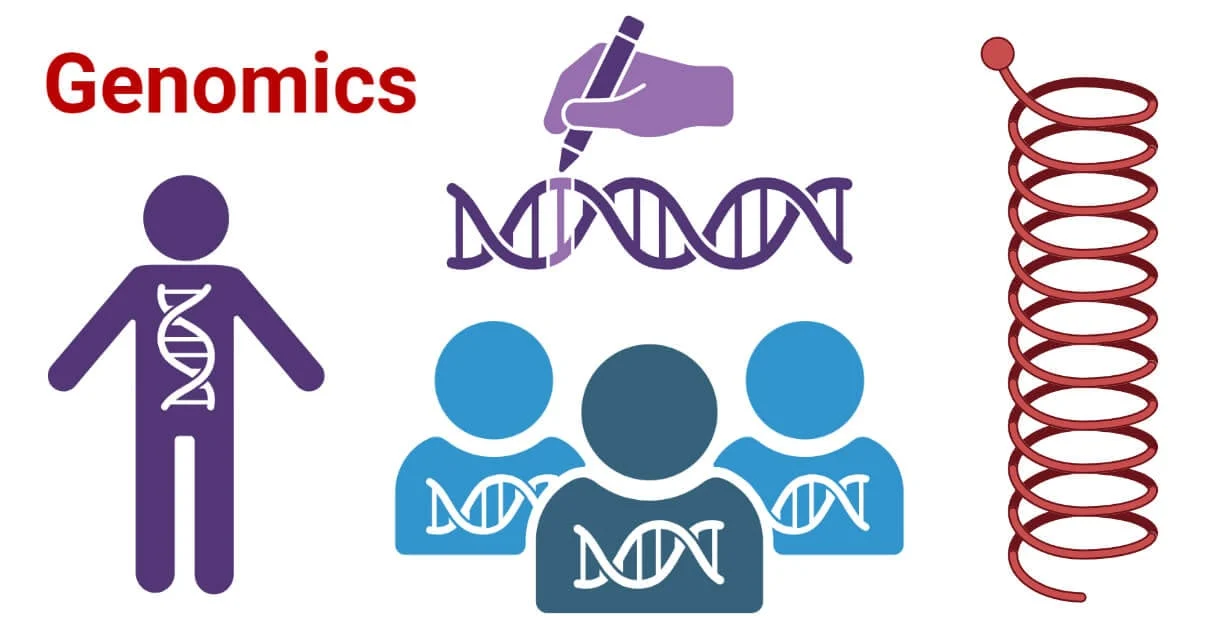Genomics: Unraveling the Blueprint of Life

Introduction to Genomics:
Genomics is a cutting-edge field of science that delves into the complete set of genes (the genome) within an organism. By studying the DNA sequences and their functions, genomics allows us to understand the underlying genetic blueprint of life. This exciting area of research has profound implications for various disciplines, from medicine and agriculture to evolutionary biology and environmental science.
Understanding the Genome:
The genome is a vast repository of genetic information encoded within DNA molecules. It contains all the genetic instructions required for an organism's growth, development, and functioning. Genomics involves sequencing and analyzing these DNA sequences to decipher the genes' locations, functions, and interactions, opening up a world of possibilities for scientific discoveries.
Genetic Diversity and Evolution:
Genomics has shed light on the genetic diversity among individuals, species, and populations. It helps us understand how genes have evolved over time, driving adaptations to various environments and contributing to the diversity of life on Earth. By studying genetic variations, scientists can gain insights into human ancestry, migration patterns, and the evolutionary history of species.
Personalized Medicine and Genomics:
One of the most significant contributions of genomics to healthcare is personalized medicine. By analyzing an individual's genomic data, doctors can tailor medical treatments to a patient's unique genetic makeup. This approach enhances the accuracy of diagnoses and enables targeted therapies, reducing the risk of adverse reactions and improving treatment outcomes.
Genetic Diseases and Genomics:
Genomics plays a crucial role in understanding genetic diseases, which are caused by mutations or alterations in specific genes. By identifying the genes responsible for various disorders, researchers can develop diagnostic tests and gene therapies to treat or prevent these diseases. Genomics also helps in screening for genetic predispositions to certain conditions, allowing for early interventions and lifestyle adjustments.
Revolutionizing Healthcare and Beyond:
The integration of genomics into healthcare is revolutionizing medical practices. Advancements in genomic technologies have made DNA sequencing faster and more affordable, allowing for widespread use in clinical settings. In cancer research, genomics has enabled targeted therapies that attack cancer cells based on their unique genetic characteristics, sparing healthy cells from damage.
Beyond medicine, genomics has applications in agriculture, environmental conservation, and forensic science. It assists in developing genetically modified crops with improved traits, tracking and conserving endangered species, and aiding criminal investigations through DNA profiling.
Challenges and Ethical Considerations:
While genomics offers incredible potential, it also presents challenges and ethical considerations. Issues related to data privacy, genetic discrimination, and the responsible use of genetic information require careful deliberation and regulation.
Conclusion:
Genomics is an awe-inspiring field that unravels the mysteries of life through the study of genes and their functions. From understanding genetic diversity to driving personalized medicine and revolutionary healthcare advancements, genomics is transforming the way we approach health, science, and the world around us. As research and technology continue to advance, genomics will undoubtedly pave the way for even more remarkable discoveries and improvements in various fields, benefiting humanity in countless ways.
526 0 7
Write a Comments
* Be the first to Make Comment















